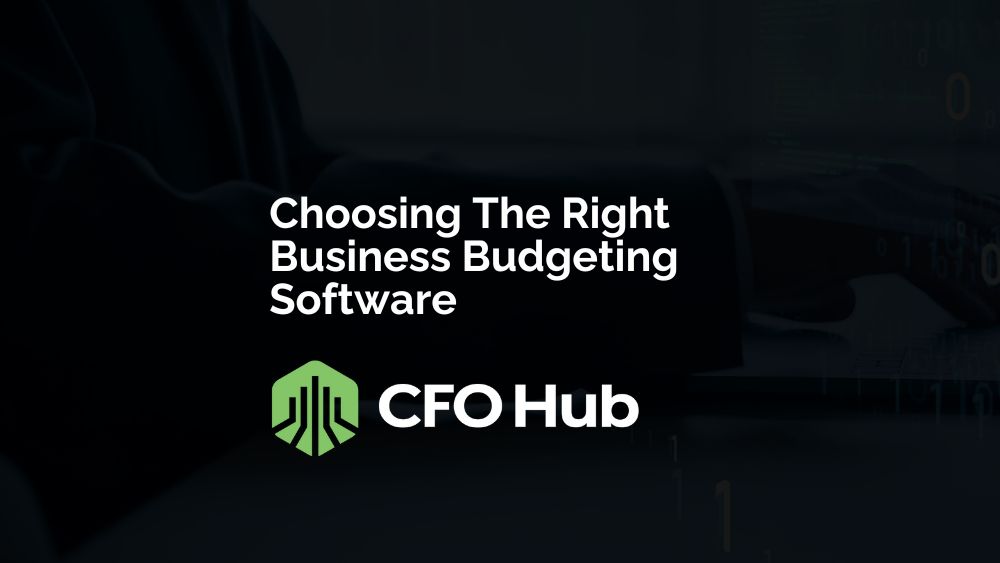Budgeting software is a crucial tool for modern businesses, enabling them to manage finances effectively, plan accurately, and make data-driven decisions. Selecting the correct budgeting software can significantly impact a company’s financial health by providing clarity, accuracy, and control over financial operations.
Business budgeting software automates critical financial tasks, reduces the risk of human error, and delivers timely insights. However, with numerous options available, determining the best fit for your business requires a clear understanding of your organization’s specific needs and goals.
Understanding Your Business Needs
Before exploring budgeting software options, clearly outline your company’s financial processes and objectives. Different software solutions cater to different sizes, structures, and industries. Small businesses might seek simpler, user-friendly platforms, while larger companies with complex financial operations often need robust, customizable solutions with advanced analytics.
Consider the following factors:
- Business Size and Structure: Small to medium-sized businesses usually prioritize affordability and ease-of-use, whereas larger corporations may require comprehensive functionalities such as scenario analysis, integrations with ERP systems, and detailed reporting capabilities.
- Financial Complexity: Companies handling multiple product lines, revenue streams, or geographical locations need advanced budgeting capabilities to track complex financial scenarios accurately.
- Industry-specific Requirements: Different industries have distinct budgeting processes. A manufacturing company might require detailed cost analysis features, while a service-oriented firm could prioritize workforce budgeting capabilities.
Key Features to Look for in Budgeting Software
Effective budgeting software typically includes certain core functionalities:
- Real-Time Data Integration: Software should seamlessly integrate with your existing accounting systems, ERP, payroll, and CRM software to ensure data consistency and timely financial insights.
- Forecasting and Scenario Planning: Choose software that supports robust forecasting models and allows for multiple scenario planning. Businesses benefit greatly from being able to anticipate potential financial outcomes under various conditions.
- Customizable Reporting: Accurate, customizable reporting features help communicate financial insights clearly to various stakeholders. Reports should be intuitive, flexible, and able to highlight key performance indicators relevant to your business.
- Ease of Use: User-friendly interfaces are crucial for adoption across teams. Software that requires extensive training can disrupt financial operations and delay benefits realization.
- Security and Compliance: Protecting sensitive financial data is paramount. Budgeting software should provide robust security protocols, data encryption, regular backups, and compliance with regulatory standards.
- Collaborative Capabilities: Consider platforms that support collaborative budgeting processes, allowing multiple departments to contribute, review, and approve budget data seamlessly.
Cloud-Based vs. On-Premise Solutions
Businesses also need to decide between cloud-based and on-premise budgeting solutions:
- Cloud-Based Software: Typically delivered via a subscription model, cloud solutions offer flexibility, remote accessibility, automatic updates, and scalability. They eliminate the need for significant upfront investment and IT maintenance costs.
- On-Premise Software: Installed locally on your business servers, on-premise solutions give you complete control over data and security but usually involve higher upfront costs and ongoing IT maintenance.
For most businesses, cloud-based budgeting software is a practical choice due to lower costs, enhanced flexibility, and ease of scaling as your business grows.
Budget Considerations and Costs
Price plays a crucial role in software selection. When evaluating budgeting software, assess the total cost of ownership, including subscription fees, setup and integration costs, training expenses, and potential costs related to scaling or adding new users.
Some platforms offer straightforward monthly subscriptions, while others might charge additional fees for advanced functionalities or increased data storage. Balance affordability against essential features to avoid over-investing in unnecessary capabilities.
Evaluating Vendor Support and Reputation
Choose a budgeting software provider with a solid reputation for customer service and reliability. Excellent vendor support can significantly influence successful implementation and ongoing usability. Research customer testimonials, read user reviews, and seek recommendations from trusted peers or industry experts.
Making Your Final Decision
To finalize your choice:
- Request demonstrations or free trials to test usability and features.
- Involve key stakeholders or departments that will regularly interact with the software to gather practical feedback.
- Verify software compatibility with your existing systems and evaluate ease of integration.
The best budgeting software will align with your company’s financial operations, accommodate future growth, and offer reliable, user-friendly functionality to support accurate financial planning and decision-making.
Selecting the right business budgeting software is essential for effectively managing financial processes and planning strategically. By clearly understanding your company’s needs, evaluating key features, and considering cost-effectiveness and scalability, you can identify a solution that empowers your business financially. Taking time for thorough evaluation ensures the software selected delivers meaningful value and long-term financial accuracy.
Jack Perkins, CPA founded CFO Hub to provide strategic finance and accounting services to enterprises of all sizes. Prior to founding CFO Hub, Jack served as the CFO and Controller of rapidly growing enterprises in California. Jack's written content has been featured in Forbes, Entrepreneur, and several other notable publications.
Visit Jack's Expert Hub to learn more about his experience and read more of his editorial content

